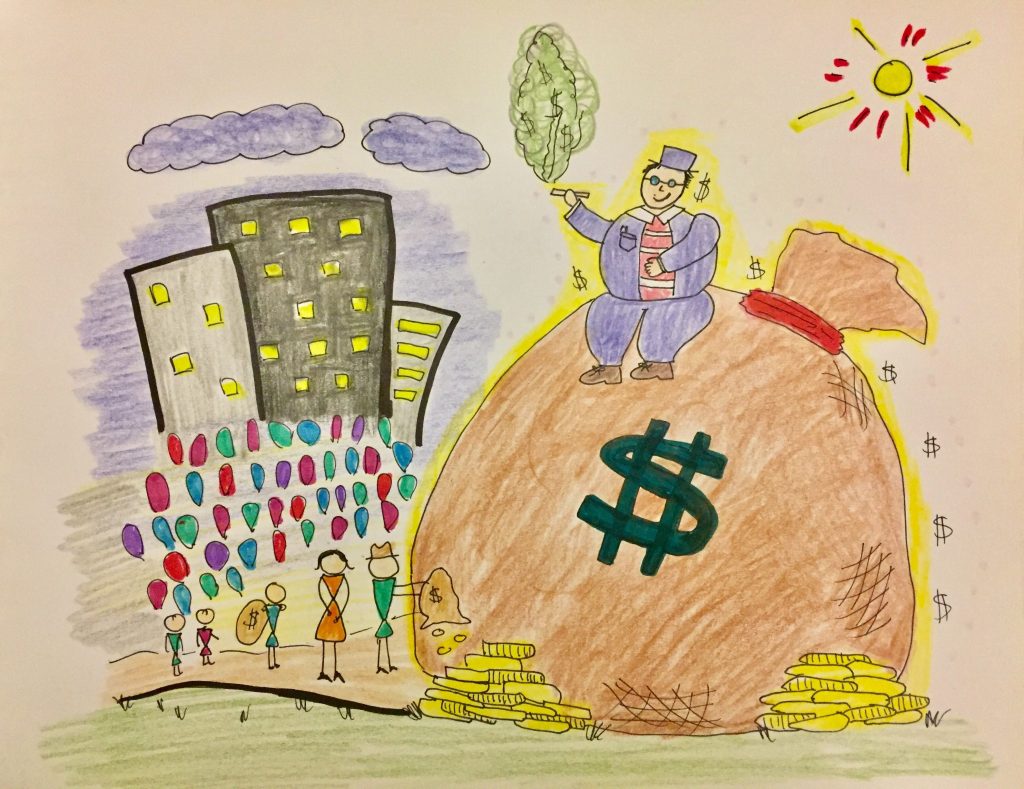At some point in your life, you may have heard the saying: “the rich get rich and the poor get poorer.” So, is there any truth to that? Will capitalism always create profit at the expense of those who need it the most? In many ways, the answer is unfortunately yes. According to the Council on Foreign Relations, “Inequality is an inevitable product of capitalist activity.” In nations like America whose thriving capitalist economies mark them as global superpowers, this isn’t good news. While the last 30 years have seen globally declining rates of income inequality as less developed economies play catch-up, economic growth in nations like the U.S., U.K., Canada, and Australia has disproportionately benefited the top 1% of earners.
Contrary to popular conservative belief, this is not just a problem for the poor. When combined with rising economic insecurity, failure to address inequality erodes the pillars of social order for all classes and creates backlash which may endanger the future of the capitalist system. According to Margareta Hanouz, head of global competitiveness and risks at the World Economic Forum, “There is a widespread sense that the growth model we’ve been following in past years does not deliver, in terms of increasing the incomes of the population.” Consider the uptick of usage of automation in factories. Many politicians are quick to blame globalization and outsourcing for job loss in the U.S.; however, the WEF’s report from last year emphasizes that the role of automation in worker displacement represents a key threat to the economy. Switching to automation seems to be an easy decision. Machines don’t need breaks, don’t make mistakes, and don’t need medical insurance. However, a report by PwC estimates that 38% of U.S. jobs have the potential to be replaced by robots and artificial intelligence, which would leave staggering numbers of Americans out of their jobs.
Increasing rates of income inequality don’t just affect economics. Forbes reports that wage disparities have contributed to a “lack of solidarity” among people at opposite ends of the income spectrum. This has manifested itself in the political polarization of the United States, especially in recent years. With the growing divide in lifestyles from those at the top to the bottom, this polarization has created a sense of disunity throughout a nation whose motto is “E Pluribus Unum,” or “out of many, one,” referring to the historical unification of separate colonies to form a powerful, united body. And this will only grow worse as time goes on, as future generations only experience more of the divided lifestyle that income inequality has bestowed upon them.
So, if capitalism will inevitably lead to the devastating fate of inequality, why do we want to remain a capitalist society? Historian Jerry Z. Miller writes in a publication of the CFO that over the last few centuries, capitalism has generated a staggering leap in human progress, which has contributed to unprecedented increases to standards of living and created a lot of potential for future innovation and development. The coexistence of capitalism and democracy is entirely possible. As an example, look to the creation of the modern welfare state in the middle of the twentieth century. Since then, America has been pelted with a string of incredible technological developments and alterations to how we view finance and trade which have knocked the scale off balance.
Many suggestions have arisen regarding how capitalist nations should go about rebalancing the system. While conservatives have been largely ignorant of the issue, the left has spent countless dollars attempting to eradicate it with government action. Neither of these approaches will remain viable as we continue to experience a period of exponential growth and development. The first step to discovering an effective solution is to acknowledge the issue. Inequality is an inevitable product of capitalist activity. As a society we will have to develop creative solutions which allow us to reap the benefits associated with the dynamic nature of capitalism without furthering the growing divide between the rich and the poor. Secondly, I suggest that we continue to incentivise investment into education. In order to solve this threat to our society, we need to give people the resources to help themselves. In order to thrive in an increasingly competitive capitalist society, an education is a necessity.
If we don’t take this growing gap seriously soon, it may pass the point of no return for any remedy whatsoever. Peter Turchin, a professor at the University of Connecticut’s Department of Ecology and Evolutionary Biology used historical and mathematical modeling to predict the potential of a societal collapse within the next decade as a result of wealth inequality, stagnating well-being, growing political fragmentation, and governmental dysfunction. Society already passed a dangerous tipping point in 2016. There is too much on the line for us to continue letting capitalism run rampant without minimizing its growing potential – lest we may not only see inequality gaps to widen, but America to be no more.
Emily Ertle
staff writer
Graphics: Nicole Kye

